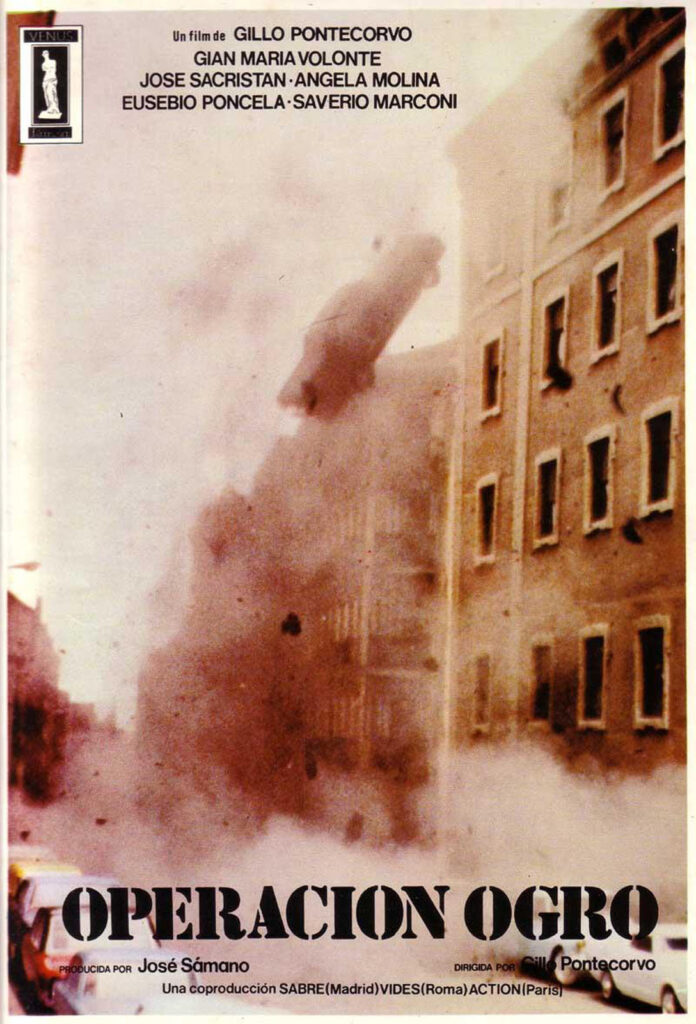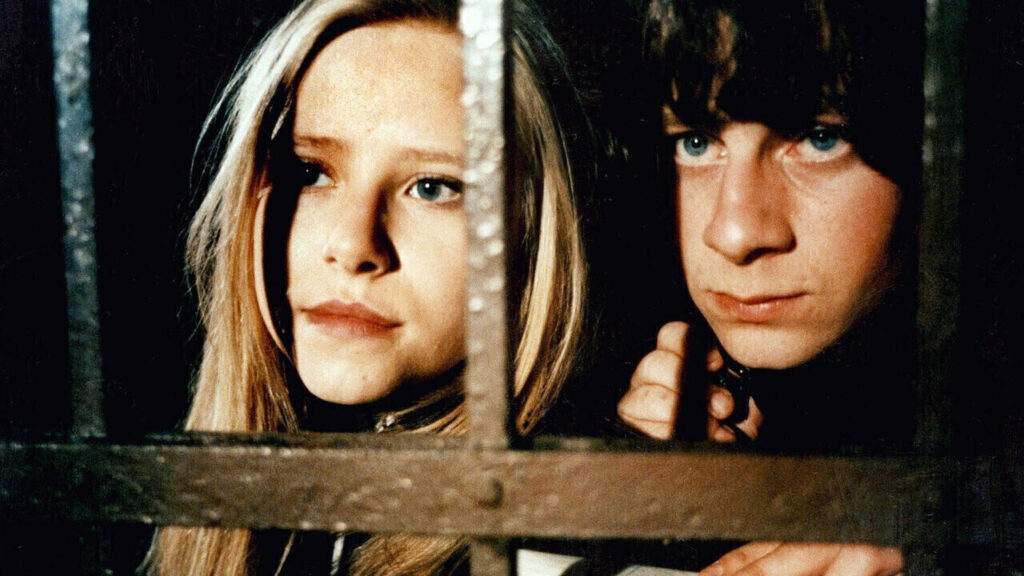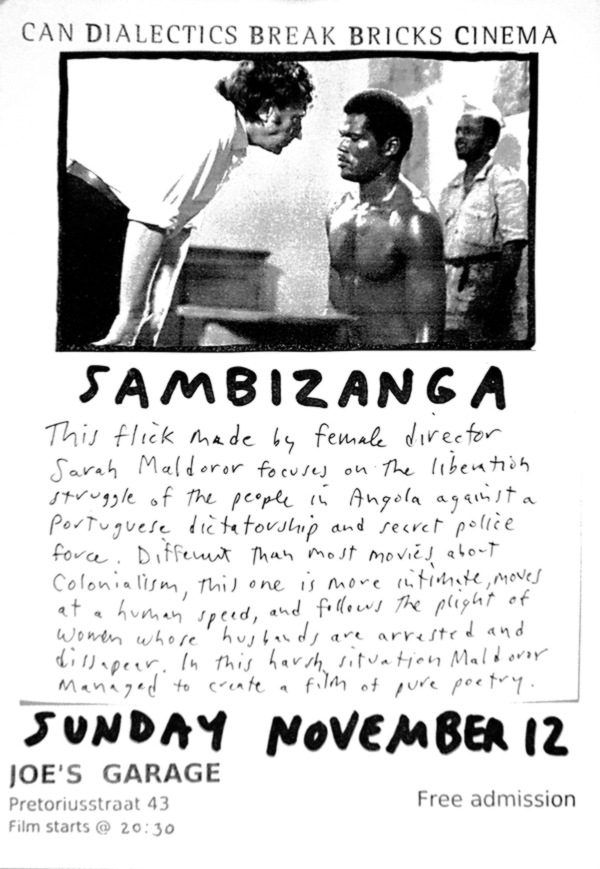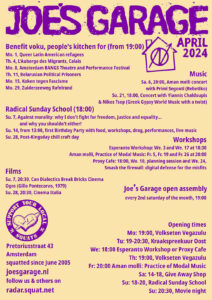Sunday 7 April 2024, Can Dialectics Break Bricks Cinema: Ogro * 1979 * Directed by Gillo Pontecorvo * 111 minutes * In Italian with English subtitles * free screening * doors open at 8pm * intro & film start at 8.30
 Directed by the legendary Gillo Pontecorvo (Battle of Algiers) this film focuses on the Basque struggle in the last years of the Franco dictatorship in Spain. As always with the films of Pontecorvo, the film methodically follows an oppressed community and their attempts to push back against power.
Directed by the legendary Gillo Pontecorvo (Battle of Algiers) this film focuses on the Basque struggle in the last years of the Franco dictatorship in Spain. As always with the films of Pontecorvo, the film methodically follows an oppressed community and their attempts to push back against power.
This film unfolds the background of a real life event that happened in 1973. A group of committed Basque ETA freedom-fighters decide to assassinate a fascist military leader named Luis Carrero Blanco, who was Franco’s strongest supporter. Director Gillo Pontecorvo is sympathetic to the Basque cause, and paints a vivid picture of their oppression. They are not seen as unreasonable bloodthirsty murderers, but as radical humanists.
Although it precisely documents the actual preparations that lead to the assassination, it also raises questions about how one achieves social change: by radical violence or by patient determination? For example, although it was an outright murder, many people felt that Blanco’s assassination led to the fall of the dictatorship in 1975. This movie was made less than five years after the actual event, and doesn’t take a firm position on either side, it just raises all these questions.
It stars the always wonderful Gian Maria Volonté, along with Ángela Molina (Buñuel’s This Obscure Object of Desire), and Eusebio Poncela (Almodóvar’s The Law of Desire)… and an original music score by Ennio Morricone.
Film night at Joe’s Garage, cozy cinema! Free entrance. You want to screen a movie, let us know: joe [at] lists [dot] squat [dot] net







